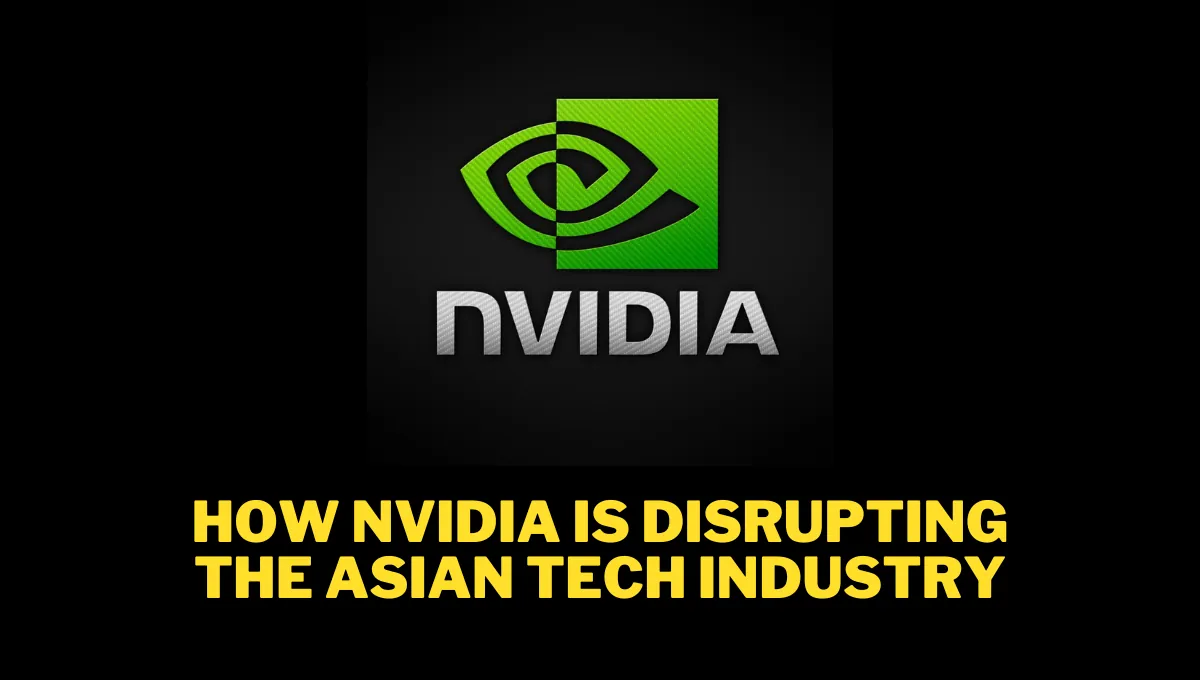Asian stocks surged on Tuesday, defying a mixed performance on Wall Street, amid growing speculation that the tech sector rally might be losing momentum.
As the market dynamics shifted, Nvidia, the prominent chipmaker central to the artificial intelligence (AI) revolution, played a pivotal role in the ongoing transformations within the Asian tech industry.
A Surge in Japanese Stocks Amid Mixed Signals
Shares in Japan led the region, climbing by as much as 1.5%. This uptick came as US equity futures saw slight gains during Asian trading hours, following the advancement of various non-tech sectors in the US on Monday.
Despite this, Nvidia experienced a three-day slump, shedding approximately $430 billion in market value, marking a technical correction.
Investors Rotate Out of the Tech Sector
In Asia, a notable trend emerged: investors began rotating out of the technology sector and reallocating their portfolios to other market segments.
This shift was particularly evident in Japanese equities, where value stocks, including banks, saw increased interest.
Financial and consumer shares emerged as the primary contributors to the regional MSCI AC Asia Pacific Index.
“As we approach the quarter-end, global investors are rebalancing their portfolios, selling assets that have recently performed well and buying those that have lagged,” explained Hideyuki Ishiguro, chief strategist at Nomura Asset Management Co. This rebalancing is expected to support the broader Topix index.
Technological Innovation in China
Chinese machinery stocks witnessed a rise following President Xi Jinping’s call for scientists and researchers to accelerate technological innovation with a heightened sense of urgency.
This push for innovation comes amid growing recognition of other countries’ dominance in certain key technologies.
Premier Li Qiang also cautioned against regressive actions like supply chain disruptions, warning they could lead the world into a destructive spiral.
US Investigates Chinese Tech Giants
In a related development, the US launched an investigation into China Mobile, China Telecom, and China Unicom over concerns that these firms might exploit their access to American data through their US cloud and internet businesses by providing it to Beijing.
This investigation highlights the ongoing geopolitical tensions and their impact on the tech industry.
Currency Movements and Economic Signals
The yen strengthened but remained near its weakest level in about 34 years. Japanese authorities have signaled their readiness to intervene if necessary, with some traders predicting the yen could slump as far as 170 per dollar.
Meanwhile, the US dollar dipped against most of its Group-of-10 peers as Treasuries steadied in Asian trading.
The Future of US Equities and Tech Sector
Following a tech-led rally, Deutsche Bank’s Binky Chadha indicated that US equities might be poised for a pause.
RBC Capital Markets’ Lori Calvasina noted that if the optimism currently reflected in the markets proves unwarranted, there could be downside risks. John Stoltzfus at Oppenheimer observed that while the bull market appears sustainable, some profit-taking should be anticipated.
Matt Maley of Miller Tabak added, “A decline in the tech sector is certainly possible, even if the sector is expected to perform well during the summer months.
Even if you agree with the most bullish scenario for the AI phenomenon in the second half of 2024, no group moves in a straight line.”
Nvidia’s Influence on the Market
Nvidia’s role in the current market dynamics cannot be overstated. As a key player in the AI revolution, its performance and market moves significantly influence investor sentiment and sector trends.
The company’s recent correction, while substantial, is part of the broader cyclical nature of the tech industry.
Nvidia’s innovations and market strategies continue to shape the future of technology, particularly in Asia where AI and semiconductor advancements are crucial.
Conclusion: A Shifting Landscape
The Asian tech market is undergoing significant changes, influenced by investor rebalancing, geopolitical developments, and the dynamic nature of technological innovation.
Nvidia’s recent market performance is a testament to the volatility and potential of the tech sector.
As investors navigate these shifts, the emphasis on innovation and strategic reallocation of assets will likely continue to define the market’s trajectory.
In summary, while the tech sector, led by companies like Nvidia, may experience fluctuations, its fundamental role in driving technological progress and market growth remains steadfast.
Investors and stakeholders should stay attuned to these developments, as they will undoubtedly shape the future landscape of the Asian tech industry.
